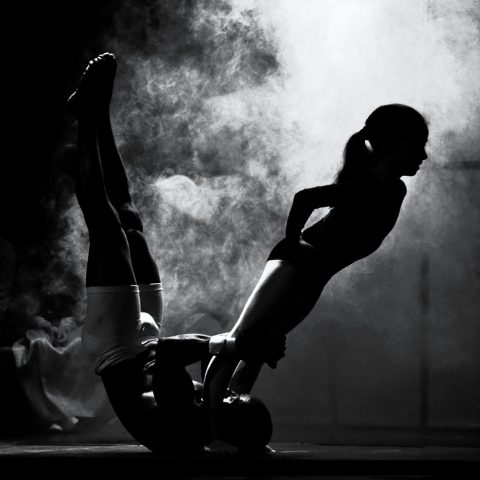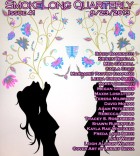“Mise en Place” has a really strong sense of place. Even the language you use feels like it’s mimicking the sound of a knife’s chop, the sizzle of sautéed vegetables to really strengthen the reading experience. Can you tell us more about your experience with cooking, kitchens, and how that tied into your writing of this piece?
I’ve worked a few different food-related jobs, everything from cake decorating to catering. So I’ve spent a lot of time in kitchens, and it’s a space I feel very comfortable in. There are a lot of proud cooks in my family. My grandmother worked at an Italian place in the small town where she lived outside of Pittsburgh. Some of my earliest memories are of going to work with her. She would start making stocks and sauces in the very early morning. I remember the pots were taller than I was.
Growing up, I always loved to cook and assumed I would do so professionally. My family discouraged that, which might seem odd given how much we all love to cook, but they wanted me to go to college instead. I was the first in my family to go. Cooking was often used as a threat, as in “Do you really want to be standing over a hot stove for the rest of your life?” It’s interesting to me now that we have this culture of the celebrity chef. There’s almost a kind of glamour associated with kitchen work. But the reality is most people work in kitchens because they need to make a living and not necessarily because they have a passion for cooking. Much like the woman in “Mise en Place.”
This is going to sound judgmental, but it’s not because I love the second person and it crushes my soul a little bit when people refuse to even give the second person a chance, but what drew you to writing in the second person in “Mise en Place?”
It wasn’t a conscious decision; the story came out in the second person and I never questioned it. Actually, other people who have read it never questioned me about using the second person, so I never thought about changing it. And that’s the thing with second, right? It has to be completely justified or readers will really nail a writer for using it.
“Mise en Place” is a very meditative story. There’s a rhythm to kitchen work and cooking, a repetition of movement and sound, and I think the second person works well with that. Also, I want to inhabit the speaker’s space, to be with her both in her thoughts and in her body as she works at her station. To feel that violation when her boss grabs her. The second person works well in that sense because it’s a commanding voice. Feel this, think this, experience this. It limits your choice as a reader, just as the speaker in this story is facing limited choices.
If you were asked to write “Mise en Place Part II: Five Years Later” how do you think the speaker would’ve changed?
The speaker in “Mise en Place Part I” is stuck. Because of her circumstances, maybe a lack of education and the need to provide for her child, she feels trapped. It’s hard to tell your boss off when the rent is due and the children need food and daycare is expensive. But most of the women I know who cook professionally are pretty resilient. They don’t suffer fools. So I’d like to think that in Part II the speaker will have moved on to a better kitchen. A kitchen with a good crew and a talented manager, perhaps herself. Somewhere with an explicit and enforced sexual harassment policy. Maybe even a celebrity chef who could stop by once in awhile with a camera crew.
There’s a generational through-line in “Mise en Place” with the speaker thinking about her mother and her daughter at home that adds to the piece’s tone and emotional urgency. Does family appear often in your work as a theme or as a character motivation?
I do write about family. Both the family we are born with and the different kinds of families we create for ourselves as adults with our friends and spouses and children and Twitter followers.
I’m interested in the ways in which both the idea and the reality of family inform a person’s choices and their relationship with the larger world. It’s a big conversation right now, especially for women. The implications of being a part of a family are enormous and differ according to our circumstances. But we’re all essentially feeling our way through a lot of complicated choices regarding family, if only by choosing to be a part of one or creating a new one or eschewing family all together.



 The core workshop of SmokeLong Fitness is all in writing, so you can take part from anywhere at anytime. We are excited about creating a supportive, consistent and structured environment for flash writers to work on their craft in a community. We are thrilled and proud to say that our workshop participants have won, placed, or been listed in every major flash competition. Community works.
The core workshop of SmokeLong Fitness is all in writing, so you can take part from anywhere at anytime. We are excited about creating a supportive, consistent and structured environment for flash writers to work on their craft in a community. We are thrilled and proud to say that our workshop participants have won, placed, or been listed in every major flash competition. Community works.